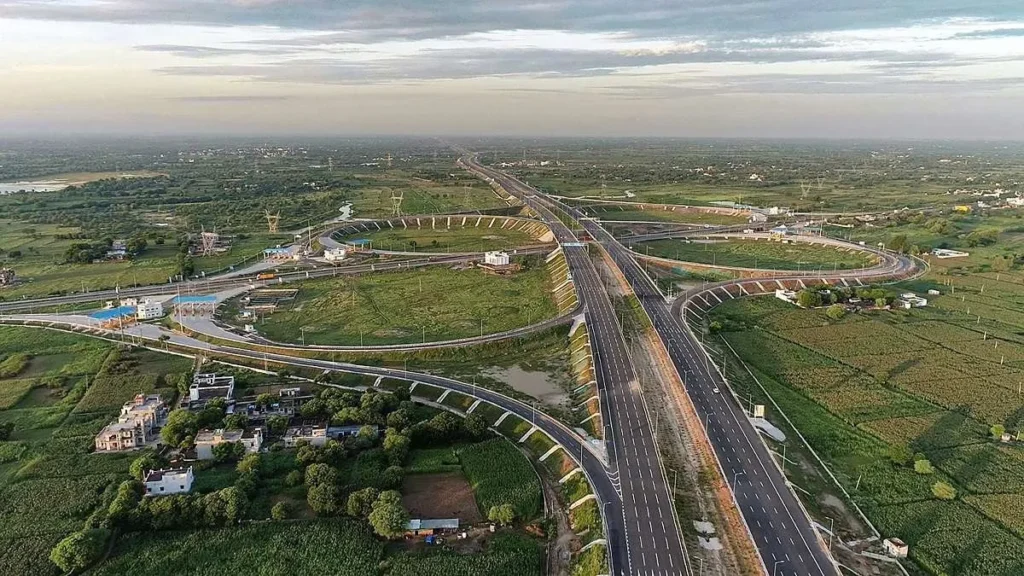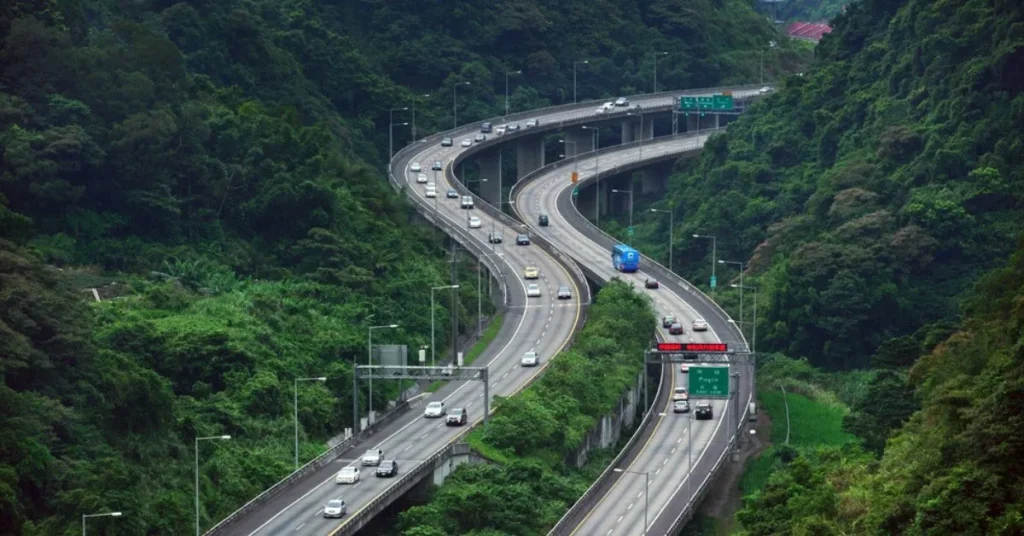India is on the verge of launching several high-speed expressways. These projects, headed by the National Highways Authority of India (NHAI), are set to redefine the landscape of highway travel across the country. Here, we spotlight ten upcoming expressways that promise to revolutionize road transport in India.

- Delhi-Mumbai Expressway
The Delhi-Mumbai Expressway, one of India’s most ambitious infrastructure projects, spans approximately 1,350 kilometers. It aims to cut travel time between the two major cities from the current 24 hours to just 12 hours. This eight-lane expressway will boost economic activities by linking major industrial hubs and enhancing trade routes.
- Bengaluru-Chennai Expressway
Connecting two of South India’s largest cities, the Bengaluru-Chennai Expressway will stretch over 262 kilometers. Designed to be a greenfield project, it will reduce the travel time to just under three hours, facilitating quicker commutes and boosting business between Karnataka and Tamil Nadu.
- Varanasi-Ranchi-Kolkata Expressway
The Varanasi-Ranchi-Kolkata Expressway will provide a vital link between these three important cities, spanning around 610 kilometers. This expressway is expected to enhance regional connectivity, significantly reducing travel time and fostering economic growth in the eastern part of the country.
- Hyderabad-Vishakhapatnam Expressway
This expressway will connect Hyderabad with the coastal city of Vishakhapatnam, covering a distance of approximately 590 kilometers. It will serve as a major corridor for freight movement, thus bolstering the economic landscape of Andhra Pradesh and Telangana.
- Delhi-Dehradun Expressway
The Delhi-Dehradun Expressway, spanning 210 kilometers, will reduce the travel time between the national capital and the capital of Uttarakhand to just over two hours. This expressway is expected to significantly boost tourism and trade in the region.
- Surat-Nashik Expressway
Linking Surat in Gujarat with Nashik in Maharashtra, this expressway will cover 200 kilometers. It aims to reduce the travel time to under two hours, enhancing the connectivity between these key industrial cities and promoting economic activities in the region.
- Delhi-Amritsar-Katra Expressway
Stretching over 670 kilometers, the Delhi-Amritsar-Katra Expressway will provide a seamless travel experience between these crucial northern cities. This project is expected to cut travel time by nearly half, promoting tourism and trade.
- Indore-Hyderabad Expressway
The Indore-Hyderabad Expressway will span around 530 kilometers, linking the commercial capital of Madhya Pradesh with the capital of Telangana. This expressway will foster economic integration and provide a quicker transit route for goods and passengers.
- Kanpur-Lucknow Expressway
A shorter but significant project, the Kanpur-Lucknow Expressway will span approximately 65 kilometers. It will drastically reduce the travel time between these two major cities in Uttar Pradesh to under one hour, boosting regional connectivity.
- Amritsar-Bhatinda-Jamnagar Expressway
Connecting Amritsar in Punjab with Jamnagar in Gujarat via Bhatinda, this expressway will cover around 1,316 kilometers. It will facilitate faster movement of goods and people across these states, enhancing trade and commerce.

Impact on Economy and Travel
These expressways are set to play a crucial role in India’s infrastructure development, offering several benefits that will significantly impact the economy and travel. Reduced travel time will make long-distance commutes more feasible and less stressful, while improved connectivity will facilitate better trade routes, enhancing economic activities across regions. The construction and maintenance of these expressways will generate numerous employment opportunities, boosting job creation. Moreover, better roads will make tourist destinations more accessible, encouraging tourism and its associated economic benefits. The integration of modern engineering and technology will ensure safer travel and efficient traffic management. As India progresses with these transformative projects, the future of highway travel looks promising, setting a benchmark for infrastructure development and economic growth in the country.
